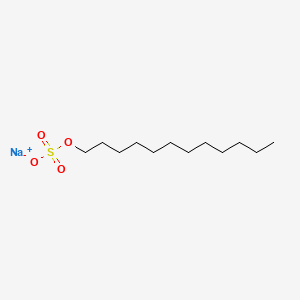
請問sodium lauroamphohydroxypropylsulfonate 是SLS的變相成分嗎?
烷基醚硫酸鹽,烷基硫酸鹽,市面上90%的販售洗髮精,護髮乳中均含它,它會損害毛囊,阻礙頭髮生長,它亦常用在牙膏、乳液、乳霜和清潔劑中,它會滲入眼睛、腦、肝臟中並會長期積存,會使細胞膜慢慢變薄,改變基因的訊息傳送(造成身體基因的突變),傷害免疫系統造成眼睛變的看不見,形成白內障,眼睛無法正常的痊癒,阻礙眼睛痊癒的過程,研究報告顯示此成份添加於化妝品和食品營養品中會使成份硝酸化,造成致癌物成為有毒物質,所有這些成份會進入人體的循環系統,經由洗髮精和口腔刷洗中攝入,這些成份會滯留在肝臟、心臟和眼睛、腎臟、肌肉中達數年之久,它們會造成眼睛發炎、起疹子,造成掉髮、頭皮屑和過敏現象。
邱品齊醫師對於 SLES &SLS 兩種成分的介紹與釋疑 :http://tw.myblog.yahoo.com/skindocchiu-cosmeticfact/article?mid=6088&prev=6907&next=5907&l=f&fid=28 .
擷取部分重點:
於是目前結論是無論是SLS或是SLES本身都不是致癌性成份(Carcinogen)
如果要以最嚴格挑剔的論點來看的話
應該說SLS高濃度長期使用可能會有促癌的可能性
而製造SLES時所產生的1,4-dioxane副產物有可能會有致癌的可能性
但這兩種狀況以目前一般的使用情形來說幾乎是可以不需擔心的
Can be irritating, especially near the eye area. It is often confused with sodium laureth sulfate (SLES).
Aquarex ME也是SLS
Aquarex ME與Aquarex methyl也是SLS
it is the sodium salt of dodecyl( or lauryl) hydrogen sulfate, the ester of dodecyl alcohol( or lauryl alcohol) and sulfuric acid.
它是十二烷基(或月桂基)硫酸氫鈉鹽,十二烷基醇(或月桂醇)和硫酸的酯。
https://en.wikipedia.org/wiki/Sodium_dodecyl_sulfate
為何我只要洗,含有 sls、sles、als、 Cocoamidopropyl Betaine 的洗髮精 都會過敏(頭皮癢 頭皮皮膚過敏發炎 頭皮屑),而且有Cocoamidopropyl Betaine的洗髮精 洗了好像都會有銀屑(有時頭髮乾後 頭皮感覺有些東西 屑之類),
特別是那種洗髮精sls、Cocoamidopropyl Betaine 洗了,沒多久 頭皮會癢 皮膚過敏發炎,有大大 能介紹 不會過敏的洗髮精嗎?
有些洗髮精不知什麼原因 什麼成份過敏(或著有毒的成份),會造成眼睛 很痛 連帶頭也跟著痛,而且痛到 睡覺 根本睡不著。
个人经验建议:大油田使用适量添加SLS的洗发产品应该挺好的,因为清洁能力真的很强,但的确这成分刺激性也强,我用含有SLS的洗发产品时手部皮肤能干到脱皮,而含有SLS 的牙膏也会让我刷牙后口腔内壁脱皮,虽然像我这样容易过敏的人也是少数,但还是建议在有其他选择的时候尽量避开这个成分,比如洗发水可以买在产品包装上明确标明不含SLS的,而牙膏也可以选择非起泡牙膏。
There has been a great of misinformation about sodium lauryl sulfate (SLS) being circulated on the Internet. Used primarily as a detergent cleansing agent SLS can be derived from coconut. Although it is a potent skin irritant it is not toxic or dangerous for skin. In concentrations of 2% to 5%, SLS can cause allergic or sensitizing reactions in lots of people. It is used as a standard in scientific studies to establish irritancy or sensitizing properties of other ingredients (Sources: European Journal of Dermatology, September-October 2001, pages 416–419; American Journal of Contact Dermatitis, March 2001, pages 28–32; and Skin Pharmacology and Applied Skin Physiology, September-October 2000, pages 246–257). Being a skin irritant, however, is not the same as a link to cancer, which is what erroneous warnings on the Internet are falsely claiming about this ingredient!
According to Health Canada, in a press release of February 12, 1999 (www.hc-sc.gc.ca/), “A letter has been circulating the Internet which claims that there is a link between cancer and sodium laureth (or lauryl) sulfate (SLS), an ingredient used in [cosmetics]. Health Canada has looked into the matter and has found no scientific evidence to suggest that SLS causes cancer. It has a history of safe use in Canada. Upon further investigation, it was discovered that this e-mail warning is a hoax. The letter is signed by a person at the University of Pennsylvania Health System and includes a phone number. Health Canada contacted the University of Pennsylvania Health System and found that it is not the author of the sodium laureth sulfate warning and does not endorse any link between SLS and cancer. Health Canada considers SLS safe for use in cosmetics. Therefore, you can continue to use cosmetics containing SLS without worry.� Further, according to the American Cancer Society’s Web site (www.cancer.org), “Contrary to popular rumors on the Internet, Sodium Lauryl Sulfate (SLS) and Sodium Laureth Sulfate (SLES) do not cause cancer. E-mails have been flying through cyberspace claiming SLS [and SLES] causes cancer … and is proven to cause cancer.... [Yet] A search of recognized medical journals yielded no published articles relating this substance to cancer in humans.� See surfactant.
~from www.cosmeticcop.com
